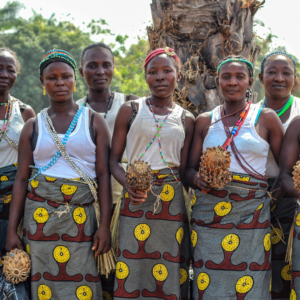Now 18, Ms. Maharjan from Nepal is actively involved in aerospace projects through the Shakthi SAT initiative, collaborating with other young women and exploring the intersection of computer engineering, artificial intelligence, autonomous robotics, and embedded systems that control satellites, drones, and rockets. With the support of her program, she is preparing to launch her own satellite, achieving goals she once only dreamed of. Despite her passion, opportunities in Nepal’s nascent space industry remain limited, and societal expectations often discourage young women from pursuing high-risk or unconventional careers.
Similarly, 15-year-old Kaat DeGros from Hasselt, Belgium, has already made strides in space exploration, having designed a sustainable research base on Mars recognized by the Oxford Academy of Excellence. Her ambition is to make humans multiplanetary, illustrating the growing global interest among young women in contributing to the future of space.
A partnership between the UN Office for Outer Space Affairs (UNOOSA) through its Space4Women project and the Cosmic Girls Foundation is providing young women like Ms. Maharjan and Ms. DeGros with opportunities to explore diverse careers in space, including economics, law, engineering, policy, and innovation. Over 30 girls participated in a global webinar in July, which focused on “demystifying space careers” and emphasized that space opportunities extend far beyond astronaut roles. Women leaders from the European Bank for Reconstruction and Development and the Kenya Space Agency shared practical guidance on academic pathways, networking, accessing resources, and overcoming challenges in the sector.
The initiative aims to build a global ecosystem that equips girls with STEM skills, astronaut training, and an innovative mindset for humanity’s future in space. Mindy Howard, founder of the Cosmic Girls Foundation, highlighted the importance of mentorship, skill-building, and confidence in fostering female leaders in space. UNOOSA also emphasizes the initiative’s potential to influence policymakers toward gender equality in the space sector, promoting a vision where men and women are equal partners.
Despite progress, the space sector remains gender-imbalanced. Only 11 percent of astronauts are women, and they make up just 30 percent of the workforce in public space organizations, according to Space4Women’s 2024 study. Ensuring meaningful participation of women is critical for productivity, global collaboration, and innovation. The UN’s first gender mainstreaming toolkit, developed following the 2023 Space4Women Expert Meeting, aims to dismantle gender bias and create environments where women can succeed alongside male colleagues.
Since 2017, the Space4Women project has mentored over 270 girls from 68 countries. The Cosmic Girls Foundation has connected nearly 1,000 girls from 139 countries, launching a global competition to train six girls—one from each continent—with the knowledge, skills, and mental preparedness to become astronauts, with the grand prize including a trip to space. Participants like Ms. DeGros describe the competition as a source of hope and motivation for their future careers in space and astrophysics.
Providing girls with a nurturing and safe environment from an early age is essential to build confidence and develop collaborative problem-solving skills. The programs allow them to hone abilities that are often discouraged in traditional settings, empowering them to pursue careers previously considered out of reach. Young participants express growing confidence and optimism about achieving equality in space exploration, signaling a promising future for women in the field.






